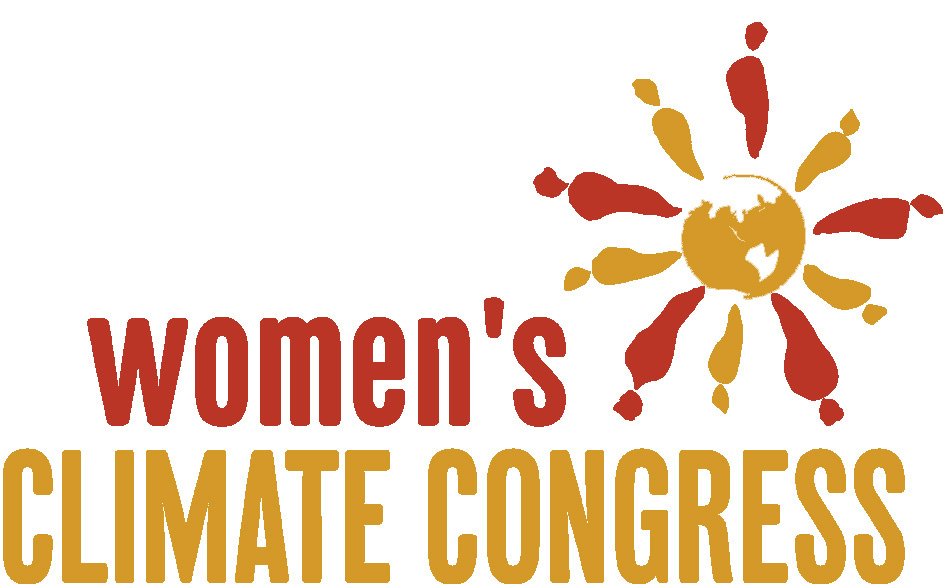
Multiparty women’s groups in government
(women’s caucus)
Why do we promote multiparty women’s groups?
In discussions with women members of parliament nationally and in the ACT, as well as at our Women’s Climate Conversations and National Congress of Women events, we have consistently advocated for for women in government at all levels to work together across parties – to create a safe space where women can bring their own leadership style, priorities and a women's lens to policy development and debate. In the US a Congressional Women's Caucus was formed in 1977 and had provided a place for congresswomen and senators to work together on issues of common concern for women. Many other countries also have a multiparty women's caucus.
The WCC Charter for Change Action 1 (Embrace gender-balanced, inclusive governance) includes a call for:
A multiparty women’s group (‘Women’s Caucus’) in all federal, state and territory parliaments to encourage women to work together on issues of common concern.
Research in 2022 by the Parliamentary Library initiated by WCC members Alex Marsden and Laurann Yen showed that there are XXXX women’s caucuses internationally [REFS], but apart from very occasional multiparty cooperation among women members, there has never been any formal multiparty women’s groups in Australia.
Research has also shown that women in government tend to work in more collaborative and bipartisan ways and employ a more democratic leadership style.
Climate change is an issue of concern for women because of our priorities and responsibilities for ensuring the safety of future generations. In encouraging women in government to work together , we have therefore focused on action on climate change. This is based on two well documented premises:
Women around the world are creating powerful networks to combat environmental degradation and tackle climate-related inequalities. We know that when women are elected to governance, whatever their party, environmental action and ambition is increased. OECD 2022
Women are disproportionately impacted by climate and other disasters but their policy approaches and priorities are disproportionately excluded from decision making – even when women themselves are present in increasing (and sometimes equal) numbers. WELA 2024
Given the lower representation to date of women voices and priorities in policy development and debate around action on climate change, we hope that the issue of climate change will be one that will attract multiparty collaboration among women parliamentarians.
The term ‘caucus’ in Australian is firmly associated with the Labor movement and we have found that there is resistance here to forming multiparty women’s groups under that name and as we have developed this initiative, we haved moved away from that term in favour of ‘women’s groups’, ‘roundtables’ or similar. This is work in progress.
Federal Parliament - Women’s Roundtable
27 February 2024
Building on our presentation of the WCC Charter for Change to women parliamentarians at the end of 2022, early in 2024, we offered all the women parliamentarians (House of Reps and Senate) an opportunity to be updated ‘on our activities since that time, nationally and internationally, and to share thoughts on women’s participation and leadership in actions to secure the climate and promote human and planetary wellbeing for future generations.’
We sent this letter of invitation:
Invitation to a multiparty ‘Women’s Roundtable’ conversation hosted by the Women’s Climate Congress Charter for Change
Tuesday 27 February, 2024, 4.30-5.30 pm
Committee Room 1R2, Parliament HouseIn November 2022, the Women’s Climate Congress presented our Charter for Change to women parliamentarians at an event in the Member’s Hall of Parliament House that also brought a unique women’s perspective into that space through the artistic contribution of A Chorus of Women.
With thanks to the assistance of the Member for Canberra Alicia Payne MP, we are pleased to invite you to join us for a ‘Women’s Roundtable’ discussion and update on our activities since that time and to share thoughts with you on women’s participation, leadership and priorities in actions to secure the climate and promote human and planetary wellbeing for future generations.
Recent events - record temperatures, floods and cyclones, fires in Canada and elsewhere, as well as the immense human suffering in wars, are all bringing home to us the immediacy of the challenges we face and the need for new styles of leadership.
The women of the WCC comment on the stress they feel about the climate crisis and other international challenges, and the benefit they feel on coming together with other women who are working to make a change. We respectfully offer the same opportunity to women in parliament.
The format will be a facilitated conversation among women parliamentarians and some members of the WCC. We will adopt the Chatham House Rule protocol for reporting.
We received acceptances (some tentative due to sitting week pressures) from 17 members and senators: 9 independents, 4 ALP, 3 Greens, 1 Liberal.
We also received apologies from 30 other members and senators from across all parties with some responses indicating clear interest in the event; for example:
From Senator Penny Wong: ‘We were hoping that Senator Wong would be available to attend but, unfortunately, due to prior commitments, the Minister is unable to accept your kind invitation. Minister Wong has asked that I pass on her sincere apologies.’
Senator Jacqui Lambie ‘extends her best wishes to the Women’s Climate Congress Charter for Change and Alicia Payne for a fruitful and stimulating hour of ideas, friendship and progress.’
Disappointingly, on the day, parliamentary sitting week activities meant that only 3 members were able to attend in person and a further 5 members were represented by staffers. WCC was represented by Janet Salisbury (who moderated the event), Kirsten Anker, Alex Marsden and Laurann Yen.
Key issues discussed related to the need to work with communities to get them engaged and vocal about the need for climate action. “The more pressure from community, the braver government can be.”
There is a lot of misinformation (scare campaigns) and community groups, including the WCC, have a role in encouraging open conversation and information sharing (both debunking and prebunking).
Electorates vary – with some areas well aware of the need for climate action and keen to discuss the moral imperatives, but others where the need to maintain jobs is more important.
Overall, despite the obvious interest among women to come together (as expressed by the response to the invitation), the group was too limited in numbers on the day to properly explore the potential for an ongoing multiparty women’s forum to continue this discussion.
ACT Legislative Assembly multiparty MLA’s breakfasts
In 2023, after meetings with some members of the ACT Legislative Assembly, WCC members Alex Marsden and Laurann Yen prepared a discussion paper for women MLAs:
A multiparty Women’s Caucus with a focus on action on climate change, Discussion starter, December 2023.
Based on this paper and discussions with MLAs, which indicated tentative support for the initiative, WCC has hosted three women’s roundtable breakfasts events in 2024. We invited women MLAs from all parties, a small number of other participants from our ACT WCC membership and a guest speaker (June and September events) and for the September event we invited other women candidates in the Oct 2024 ACT election.
The events were held at the ACT Legislative Assembly Meeting Room and the format was facilitated circle conversations with Chatham House Rule to encourage open sharing and collaboration.
12 March 2024
Topic: How can women work together to turn the pledged outcomes from COP28 into reality?
In this gathering, atetended by 6 MLAs from across all parties, we shared responses to the 2023 UNFCCC COP28 held in Dubai UAE in November 2023., including the overall urgency of the climate situation now faced by humanity and actions women can lead in the ACT and beyond to promote implementation of the UAE Consensus, gender-responsive transition, and other COP28 outcomes.
Read the report/outcome of this conversation.
19 June 2024
Topic: How best would a multipartisan women’s caucus strengthen climate action in the ACT?
This gathering was attened by 4 MLAs (all from the ACT Greens). Other MLAs had intended to come but were unable to due to family responsibilities and other work committments, illustrating the difficulty of timing these events to suit members. The gathering continuned our conversation to explore how, given the gender challenges posed within climate change, we can work collectively as women in the Legislative Assembly, and included a presentation on by Dr Katherine Trebeck on the “well-being economy” and looking after the vulnerable as part of the “just transition’
Read a report/outcome
12 September 2024
Topic: Our Climate Common Ground - How can women MLAs strengthen climate action in the ACT?
On this ocassion, give the ACT was preparing for an election, we invited all the women MLAs and also women candidates in the election.
We received acceptances from 6 MLAs and 11 candidates from across the parties.
On the day, we received a number of apologies and the event was attended by 3 MLAs and 5 candidates.
The check in was heartflet and showed ample evidence of the common ground shared by women MLAs and candidates to achieve the best possible outcomes in relation to a just transition for climate change mitigation and adaptatoin in the ACT - and the significant challenges faced by policy makers to achive these outcomes.
The session included a presentation by Dr Nina Terrey – on policymaking ideas for energy justice and effective change based on her recent report: Transforming Energy Policymaking for a Just Transition: Centring Energy Justice.
Read a report/outcome
Above: L-R Alex Marden, Nina Terrey, Janet Salisbury and Laurann Yen
Left: Women MLAs, candidates and WCC members at the Sept breakfast



